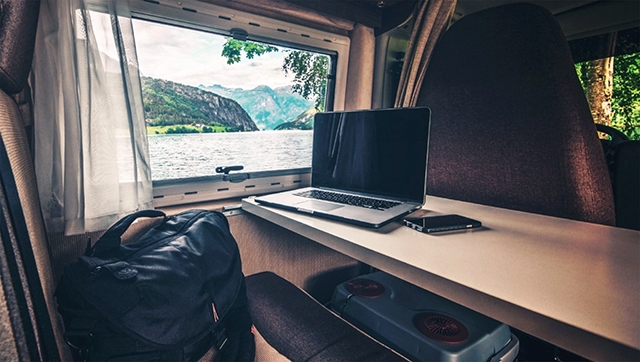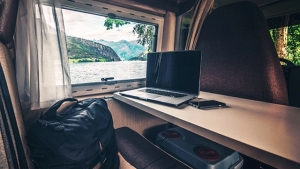Make the Most out of the Digital Nomad Program
Digital Nomads need no introduction anymore. By October 2020, we already have a list of countries who have introduced the digital nomad visa and are hoping to welcome long-term stay tourists into their beautiful countries. But is it all that simple? Who are these digital nomads, and what would convince them to move to your country and stay at your hotel or rental place, drink at your bar, or eat at your restaurant? In other words, how do you make the most out of the digital nomad program?
Converting remote workers to your next digital nomad residents
In the United States, there were already over 4 million remote workers, and that number significantly increased during the pandemic. But there are a lot of factors that stand between a remote worker and moving to a country they have never been to before.
Walking the remote workers through the process, including the labor law questions their employer may have, regulations including taxes, providing a better understanding of what life will be like on a daily basis, what their lifestyle options are, and social activities, is going to bring the remote workers one step closer to you.
Finally, make things easy by providing a one-stop-shop method where they can find everything related to their program, and a hotline they can reach out for any questions.
First Impressions
The first impression starts the moment people find out about your country’s digital nomad program or your hotel/rental place by the beach in Barbados or Bermuda, a cabin with a nice view in Georgia, or a luxury penthouse in Dubai. Understanding that this audience is different from a random tourist is the first step. Marketing a beach, city, museum, or amusement park is something that everyone can do in one way or another, yet this is a way of marketing that focuses on the product rather than the buyer.
Digital Nomads are mainly people who you can get the best results in conversion from through influencers. If their first impression about the place is through influencers actually showing them how it feels to sip that drink, eat that local dish and take a picture at their local landmark, your chances of getting a year-long tourist will be much higher.
Understand the digital nomad lifestyle
The Digital Nomad lifestyle is pretty much the way of life the entire world is slowly transforming into these days. Your office can be anywhere you have good internet, your laptop, and good food. Well, here is another business that is growing with the digital nomad idea: workspaces! They provide a great environment for nomads wherever they go, and it is important to create workspaces in strategic locations, keeping in mind things like location, options for things to do when taking a break, networking opportunities, or monthly gatherings in workspaces with particular topics, inviting the locals to attend as well.
Never forget what they came for: experience and ongoing activities related to their lifestyle which will keep them there longer.
A year full of things to do!
How cool is your hotel? How fun is your country? Every country has its beauties, and it will likely take years to explore everything, from visiting places to getting to know the locals and their culture. The Digital Nomad Visa is a great opportunity, but it is not a guarantee that someone will stay in your country for the entire duration of the program. In other words, people will get bored and want to explore a new country they saw on Instagram, and this happens only when there is no ongoing activity or bond to the country they are in right now. According to our research at Consultdemy, surveying Digital Nomads, the key for them to staying in a place for a longer period is if there is a goal, a hobby, or something else they are trying to accomplish that can only be done in that country. That definitely depends on the background of the Nomads you are catering to; however, it is important to think outside the box and understand the customer behavior of this particular target group.
Make the most out of the Digital Nomad Visa Program
Every country that has launched the Digital Nomad Visa is identifying its goal as bringing year-long tourists and income for their tourism-dependent economy. On one hand, they can be seen as a long-term tourists, but they are in reality way more than that.
Before launching the Nomad Visa, the most important step is to unite the local business community, and create a strategy on how Digital Nomads and local businesses can benefit more from this idea.
The first thing would be organizing networking events where nomads and locals get to know each other; second, to invite Digital Nomads to lecture a couple of times at a local school; organize events with local start-up hubs to discuss innovation; and promote investment in your country. Third, if agriculture is big in your country, organize free trips for nomads to go and buy organic fruits and vegetables.
While doing all this, the main focus should be on making the Digital Nomads post online about their experience, write on their blogs, take a drone video and share it on YouTube, and more: just leave this part to them, they know better!
How can Georgia get ahead of the competition?
Combining all the aforementioned tips and suggestions, according to a study conducted by Consultdemy, at the moment, a large percentage of Digital Nomads are independent contractors: it can vary anywhere from YouTubers and independent programmers to entrepreneurs. Georgia will get better results if it focuses on a particular audience first. It is important to first narrow the niche further, target a specific type of Digital Nomad, and make it for instance a ‘paradise for youtubers’, and focus on their specific needs, events related to them, and more.
The second important point Georgian businesses and its government should focus on is having a strategy for attracting larger corporation employees. Understanding that taxation is not the only barrier, that there are labor laws, regulations, and other legal obligations making it difficult for corporate employees to move, is very important.
By Erkan Munishi, Director of Tourism and Hospitality at ConsultDemy











